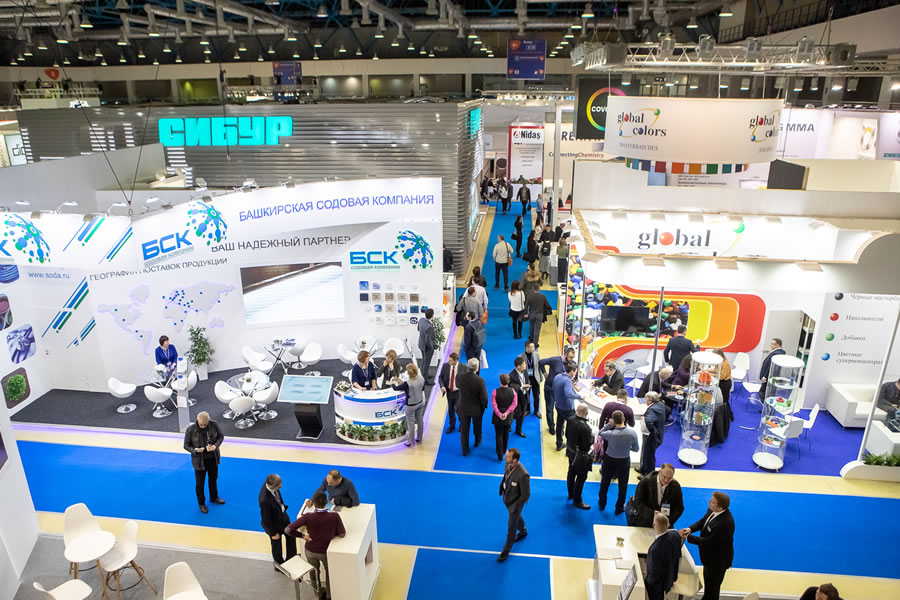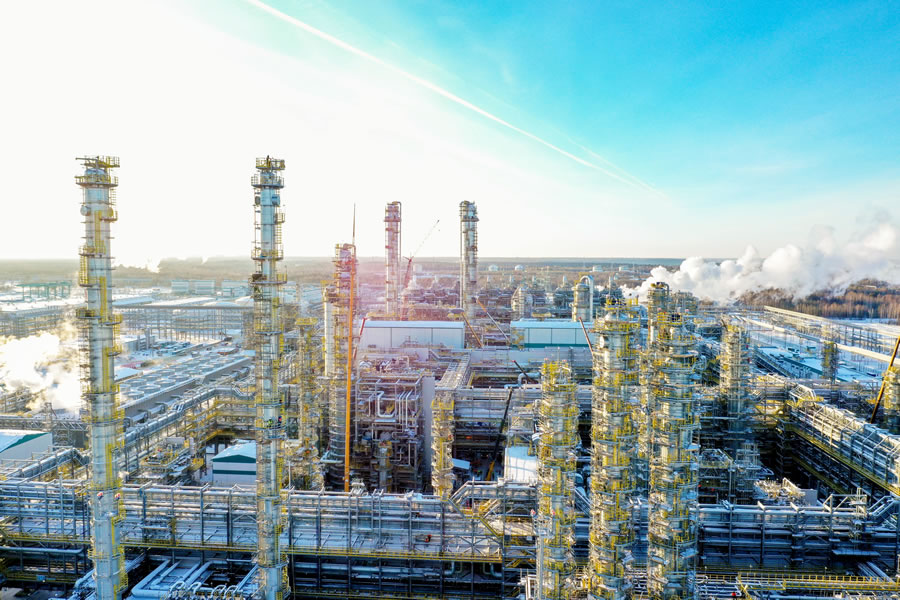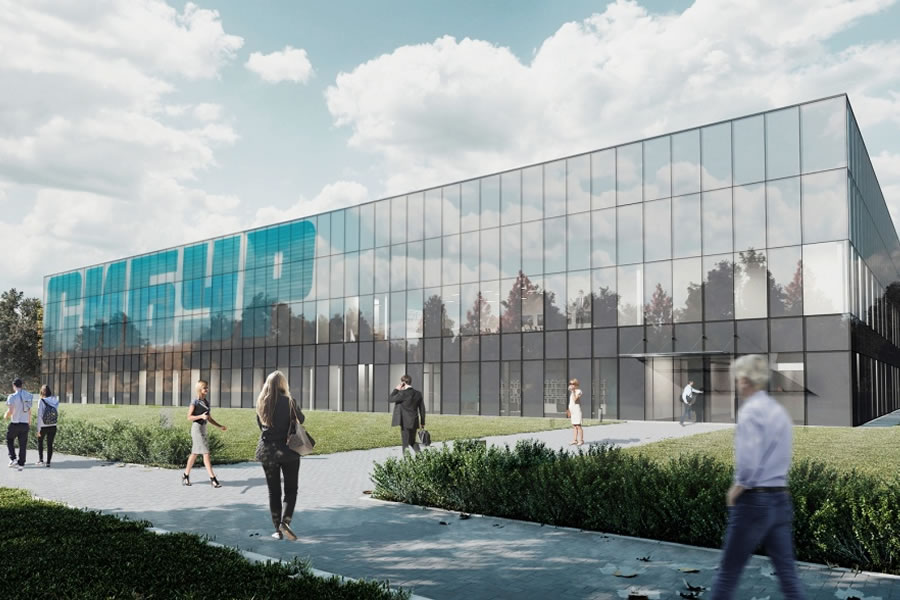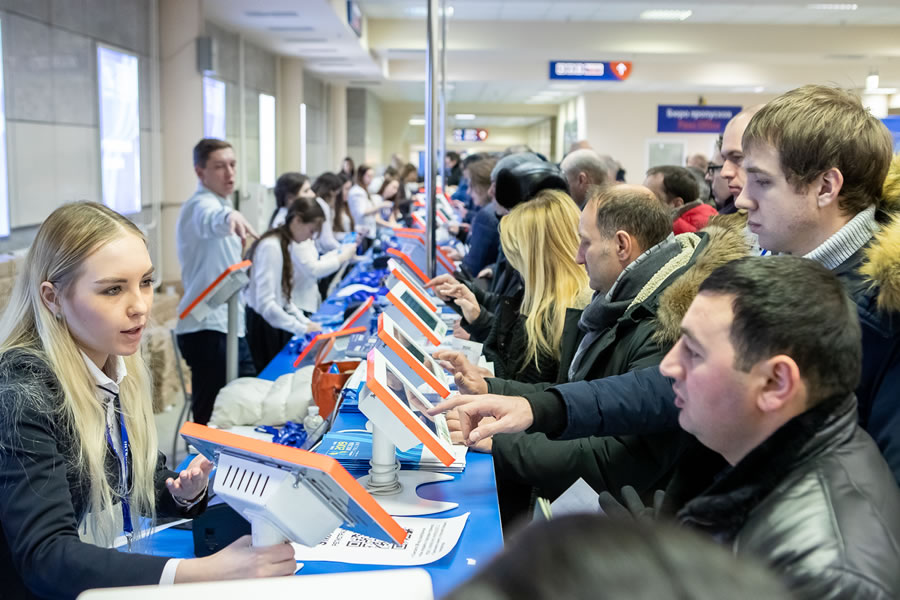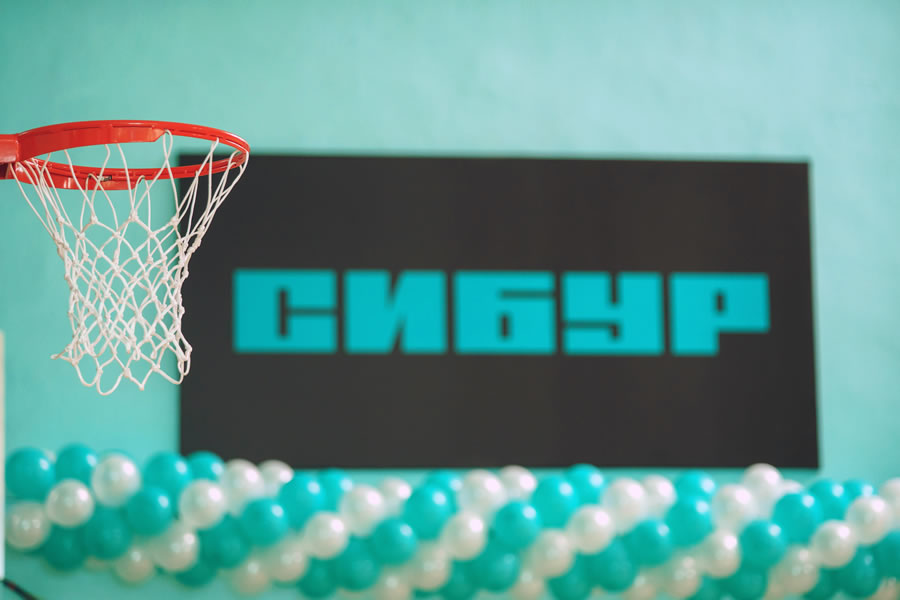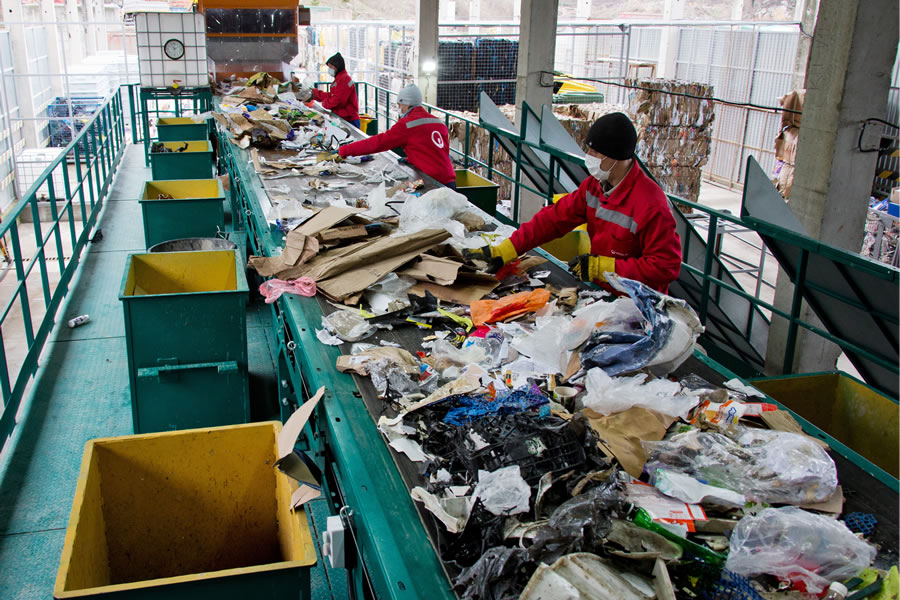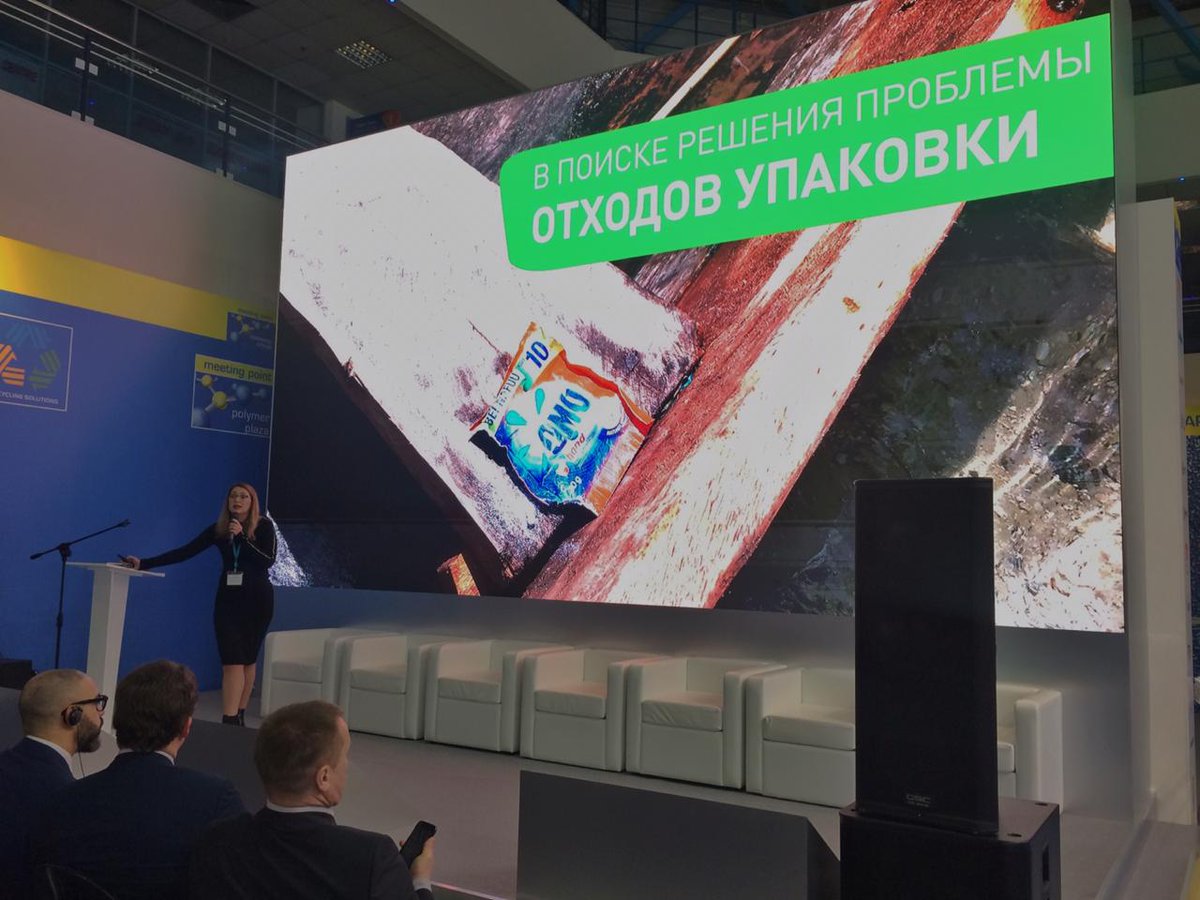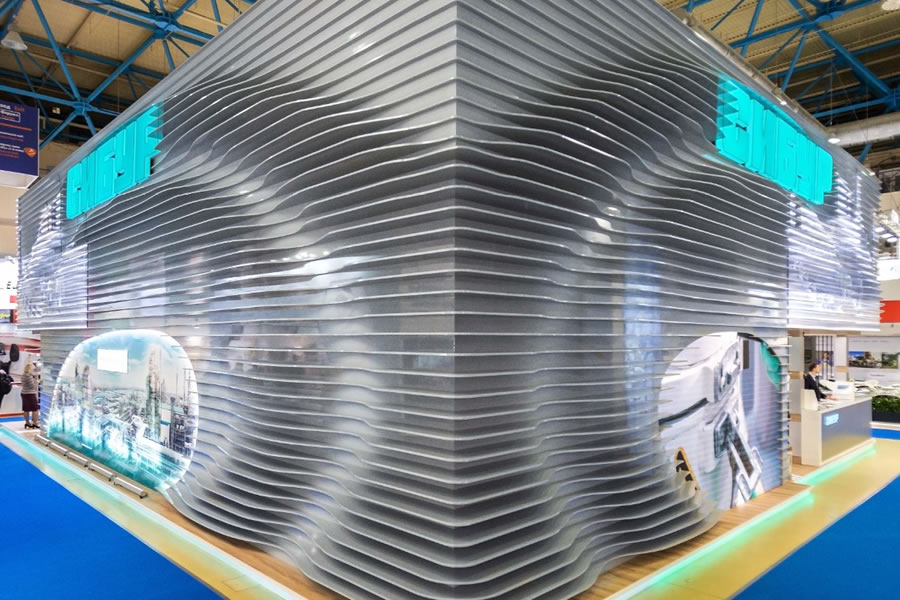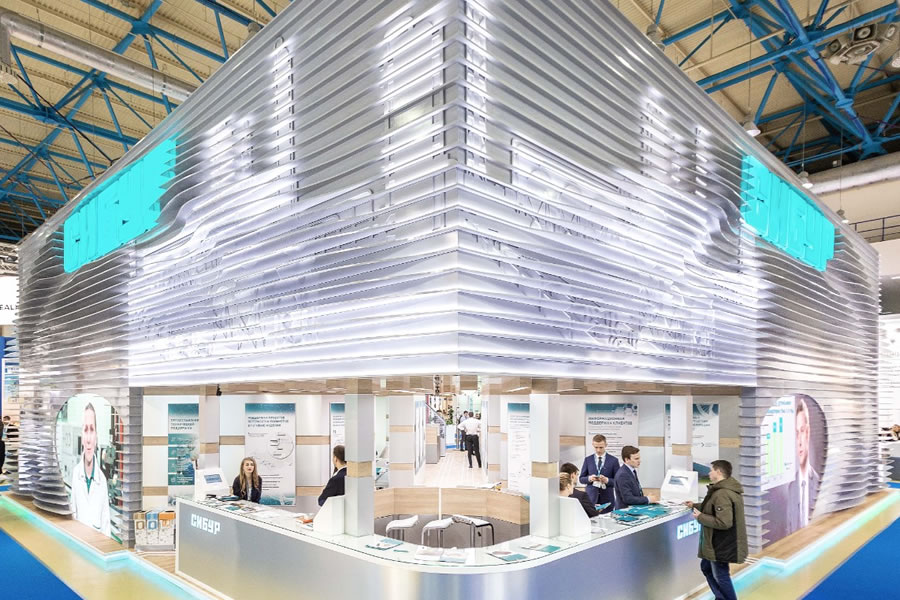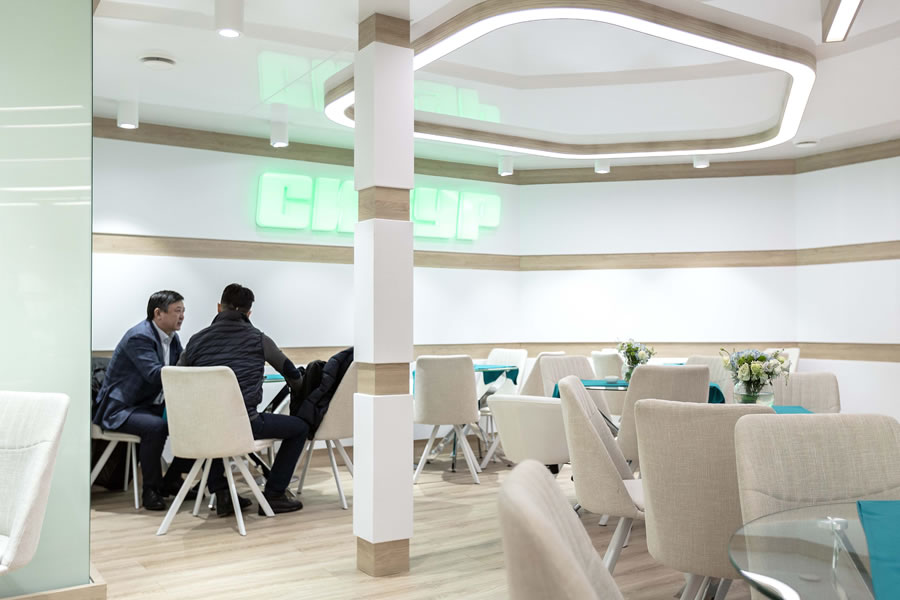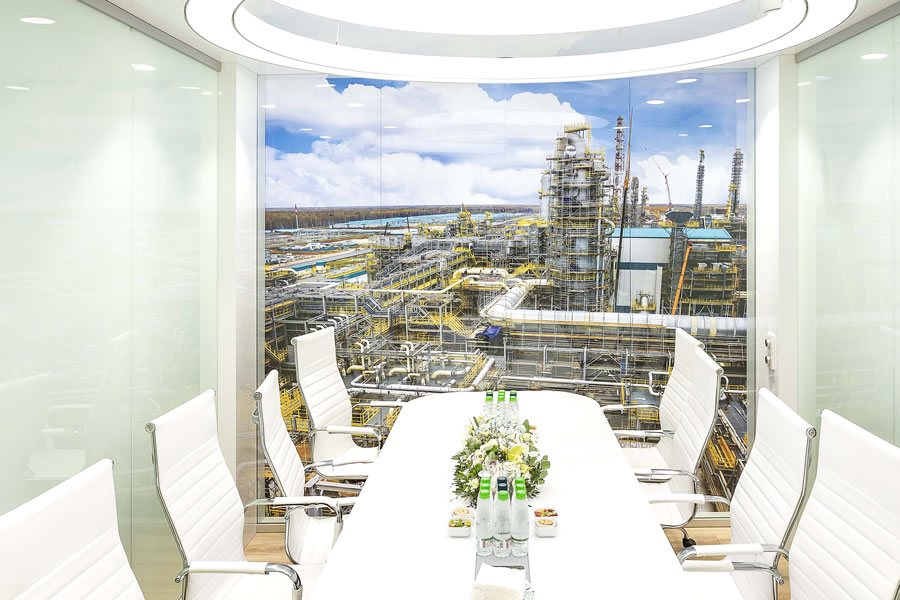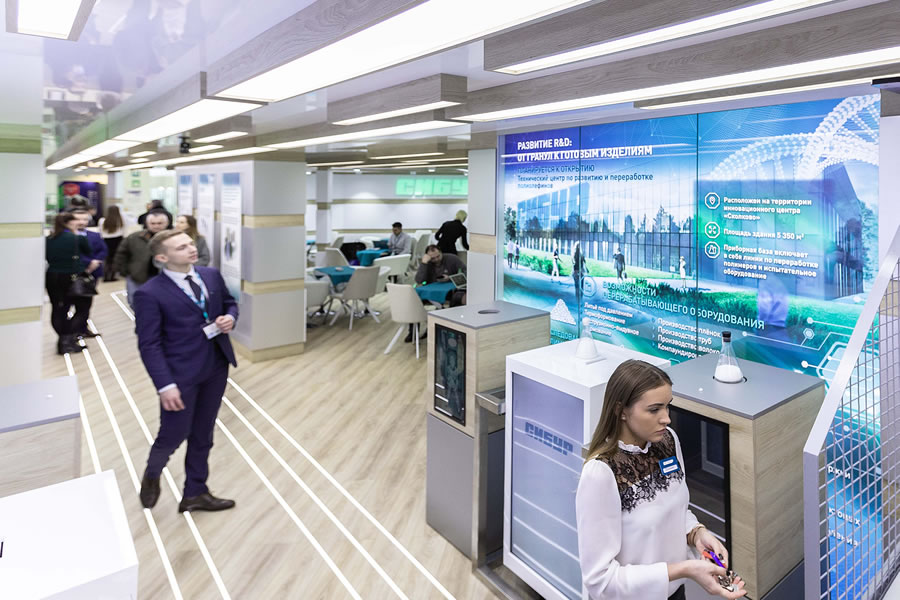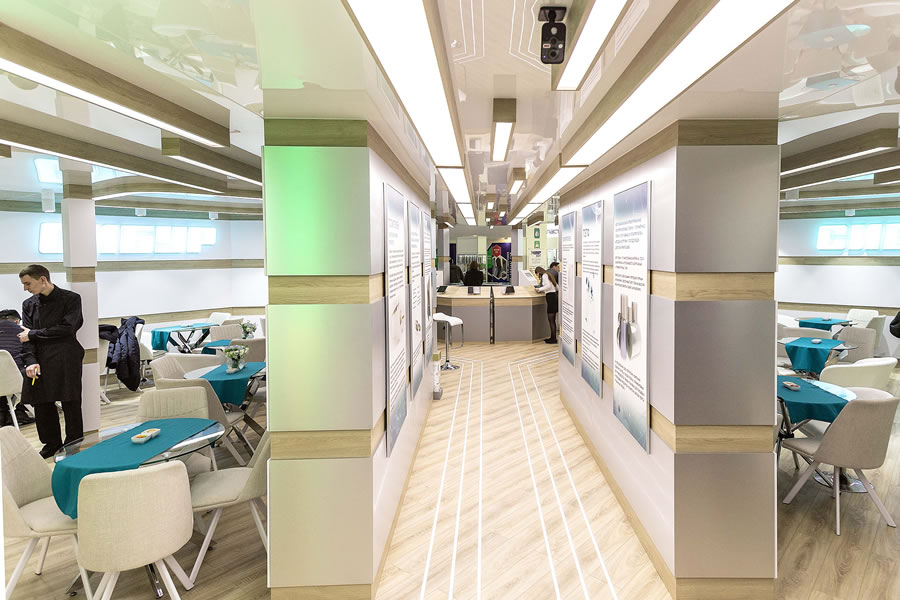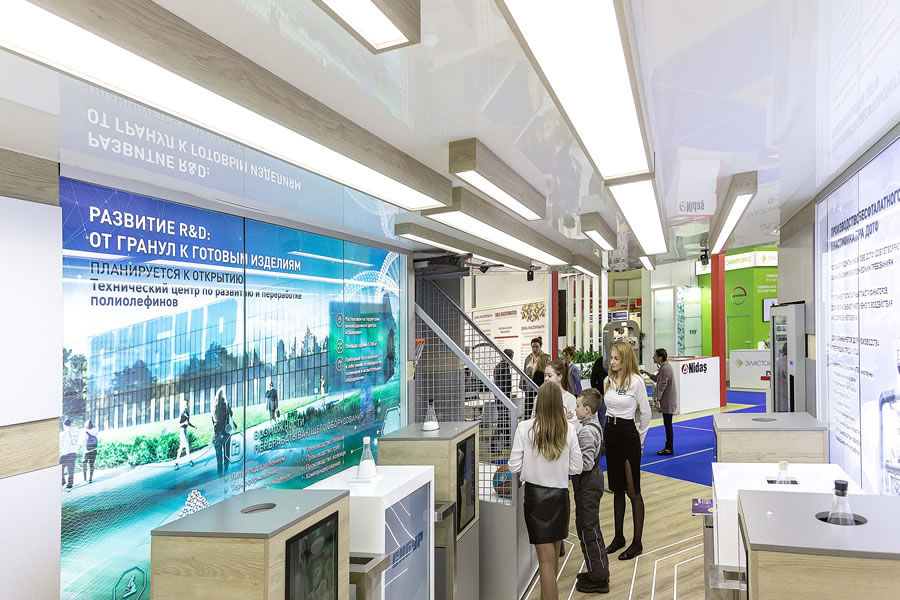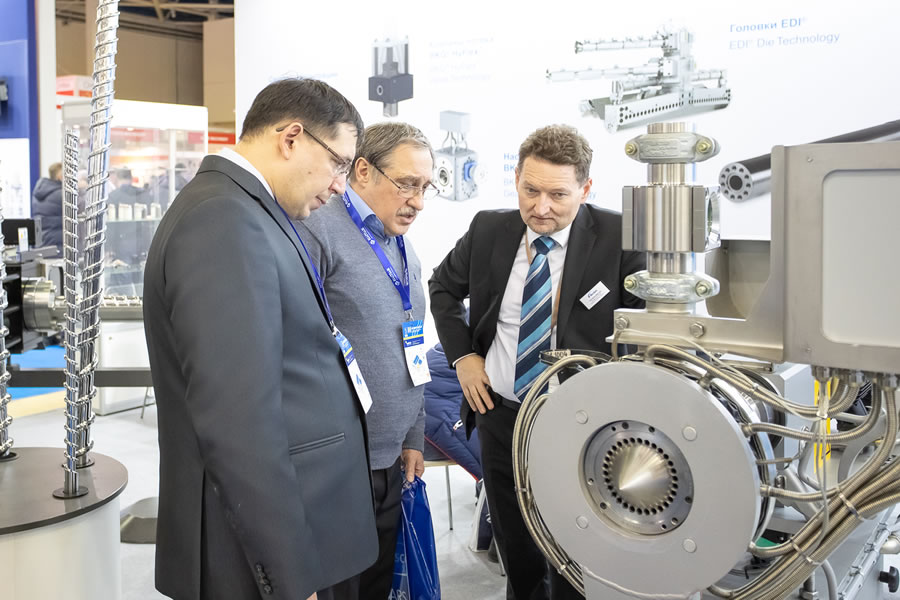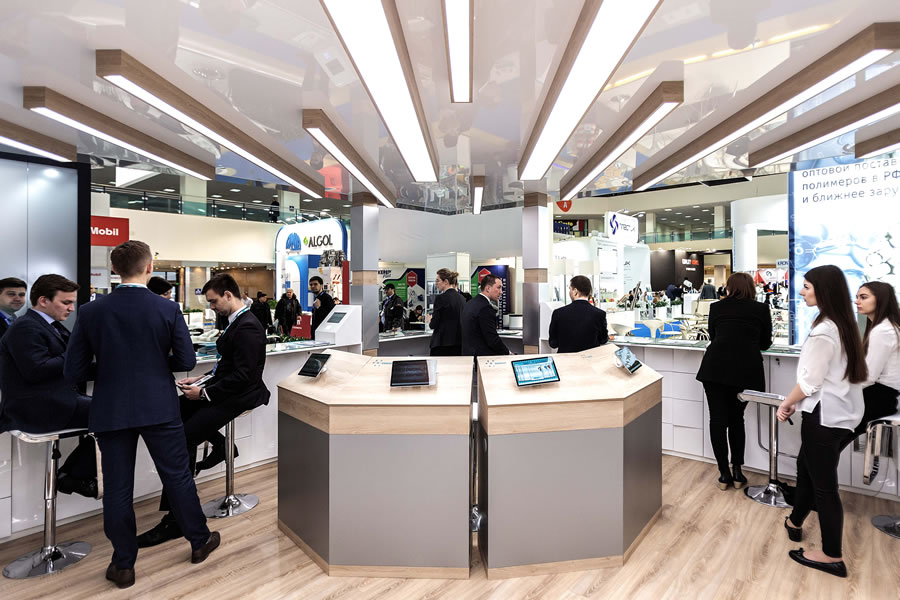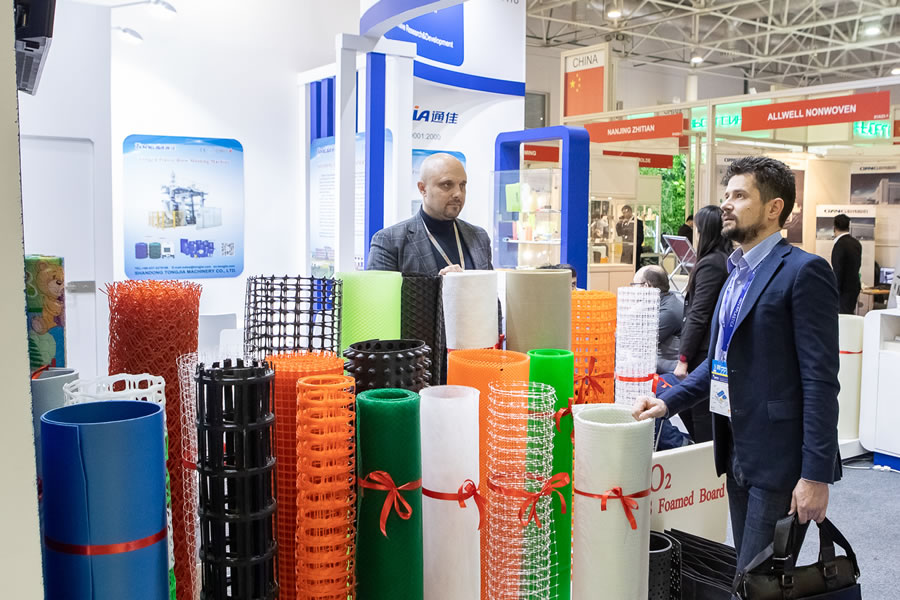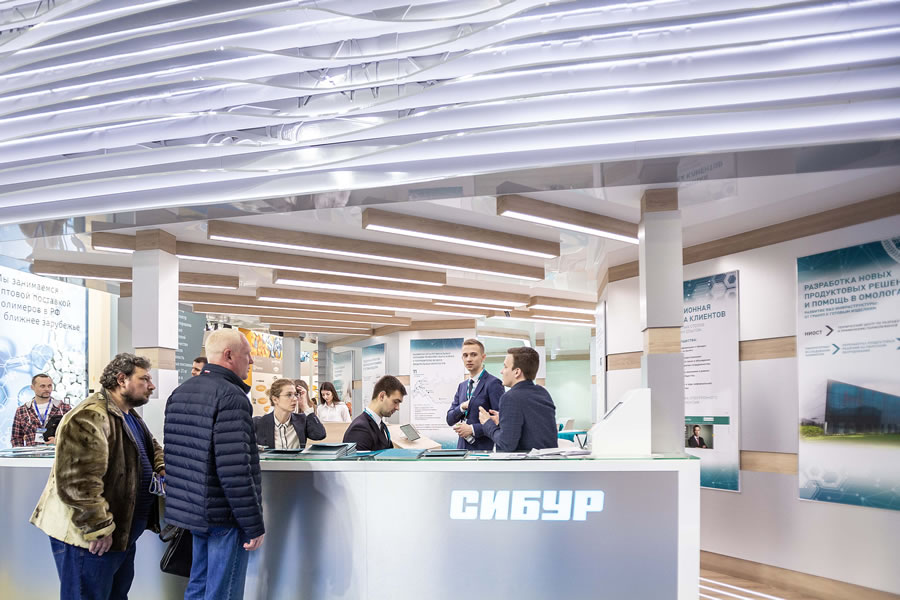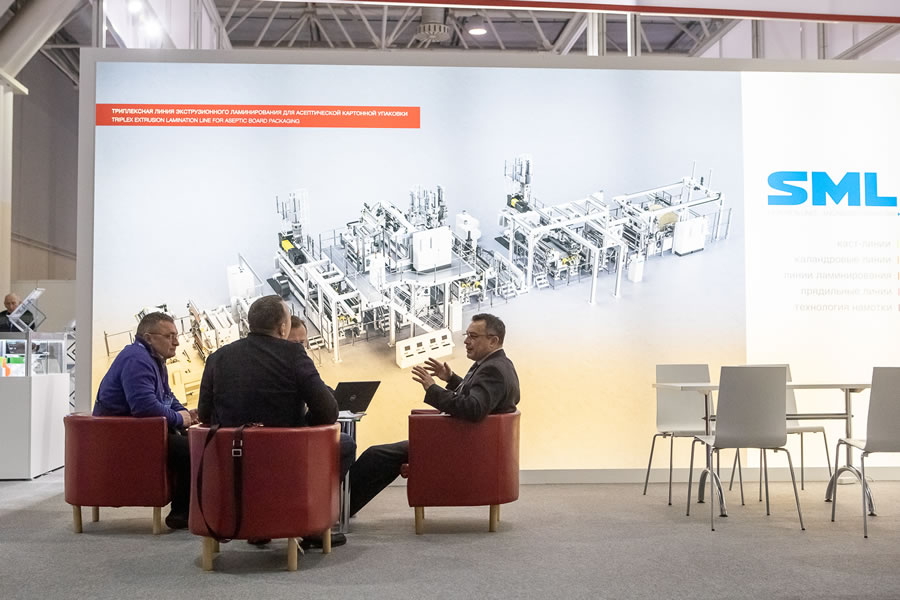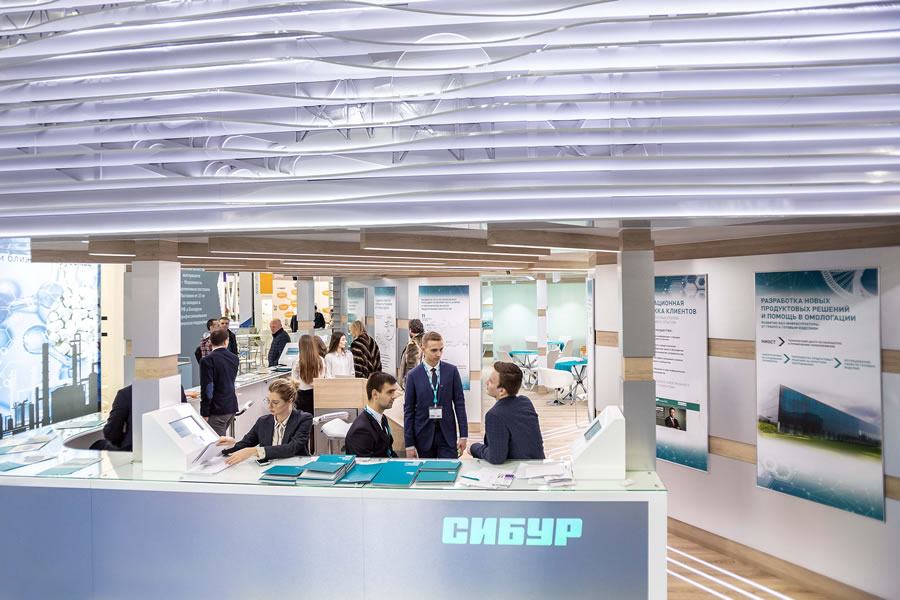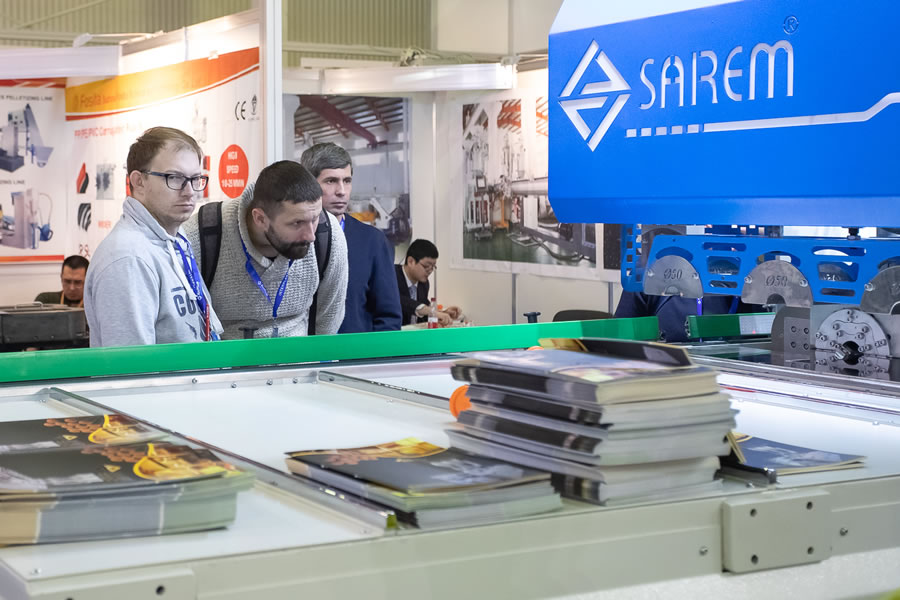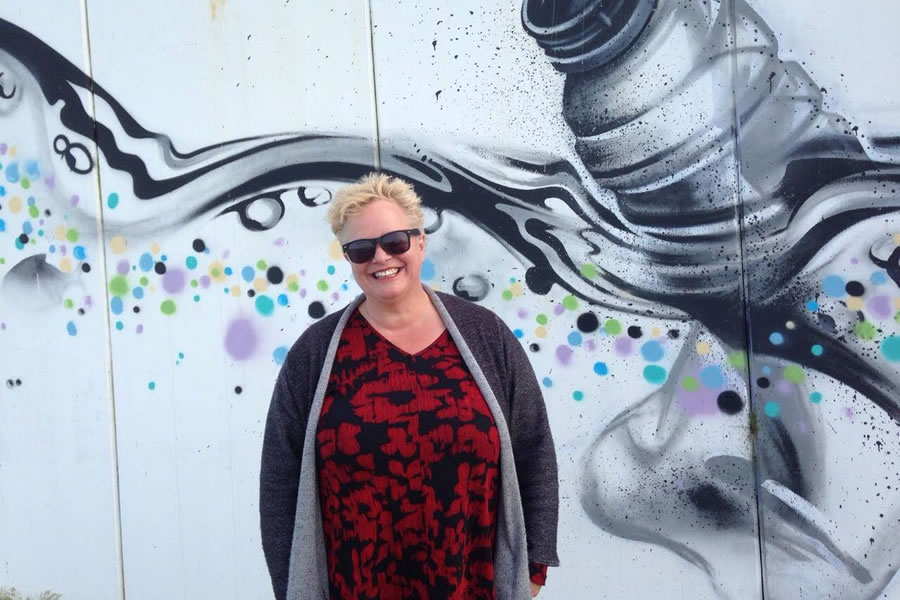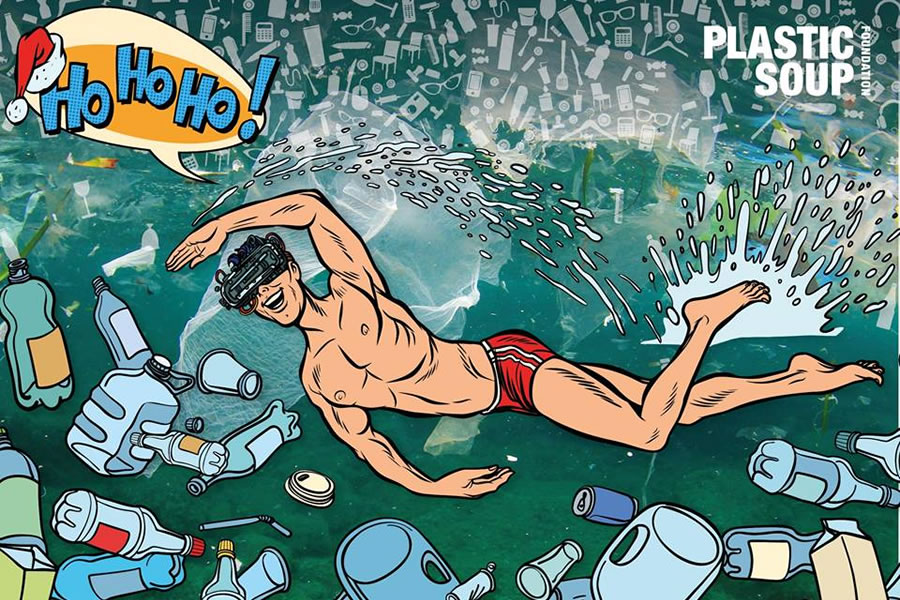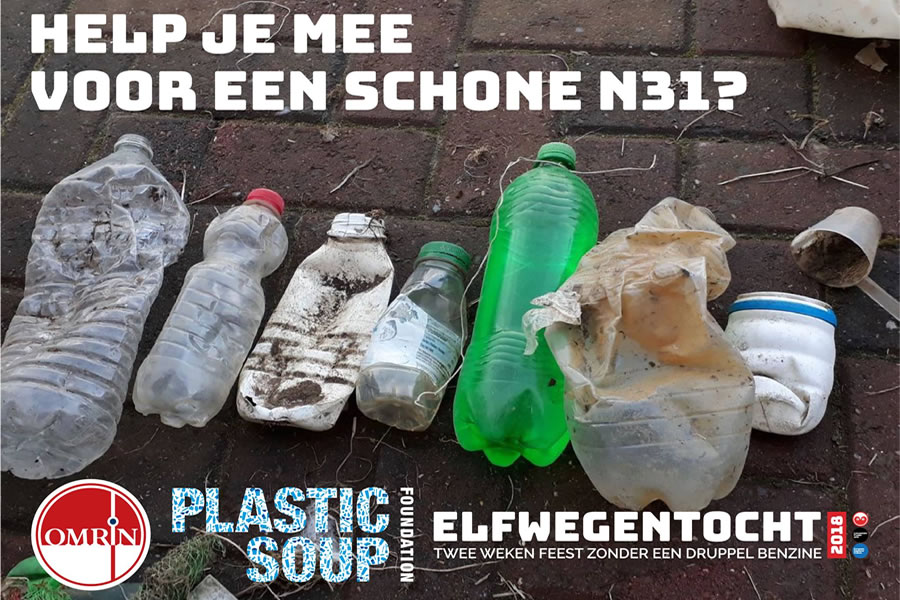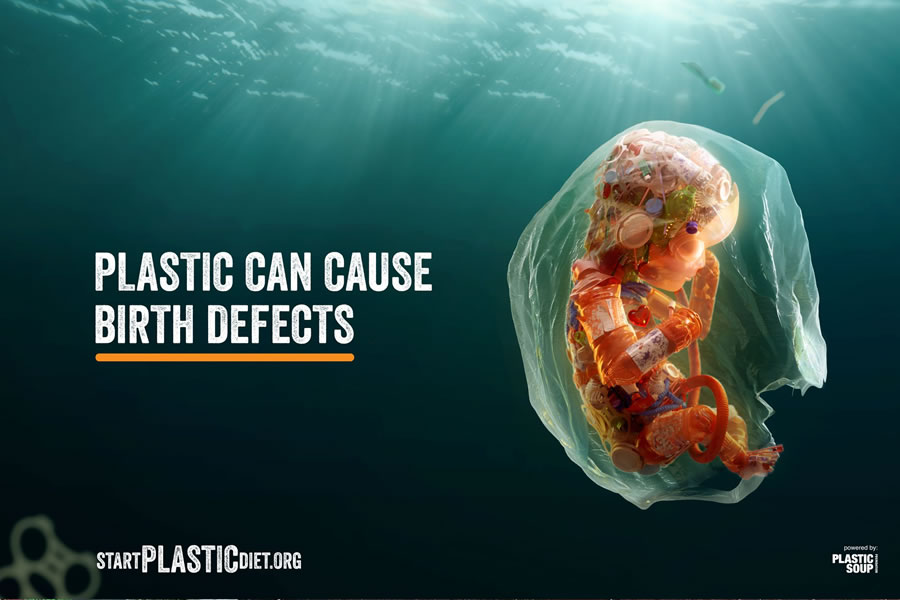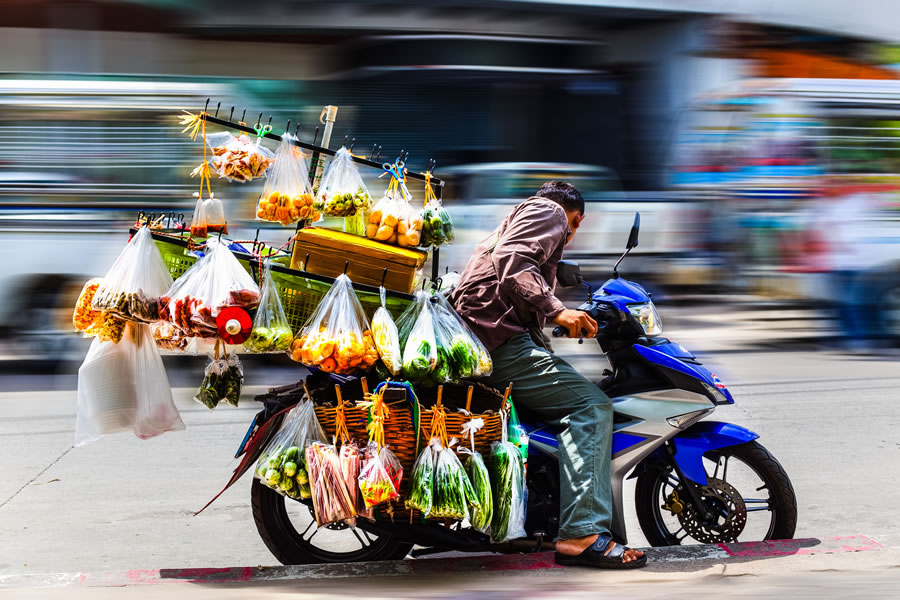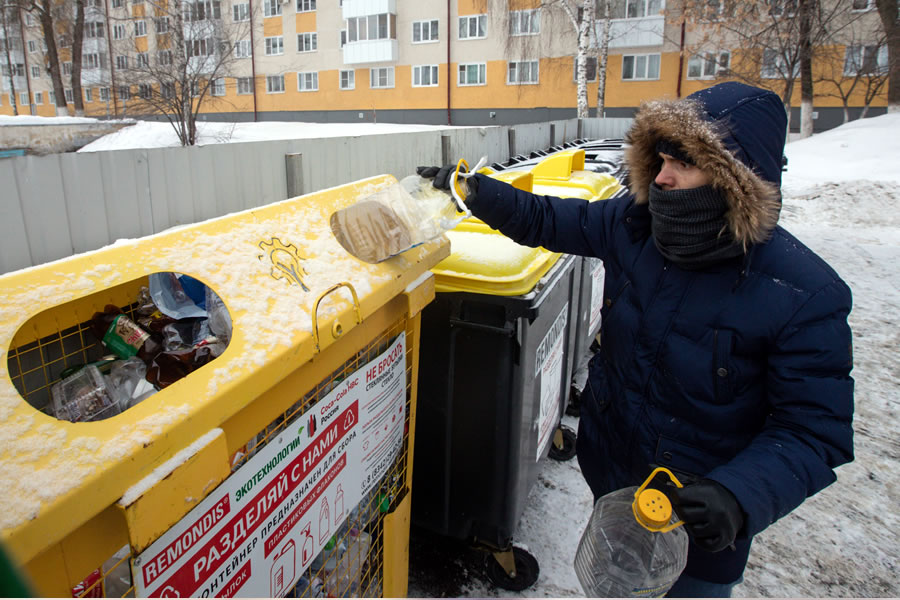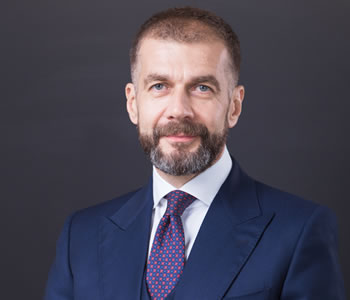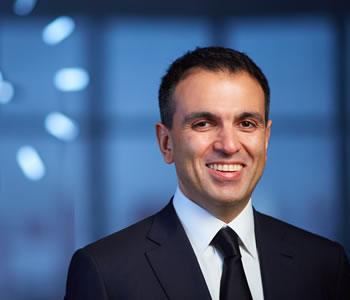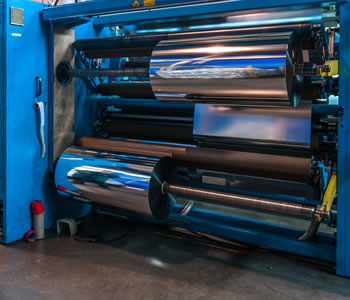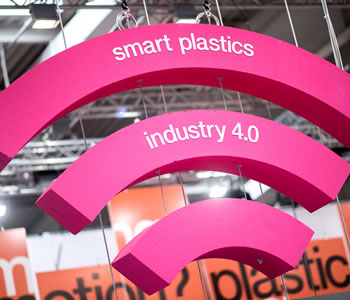The 22nd edition of Interplastica International Plastics and Rubber Trade Fair – the largest specialised polymer industry show in Russia – was held at the Expocentre from 29 January through 1 February.
As in previous years, Interplastica occupied three exhibition halls. However this year, the fair area was 15% larger. The annual increase in the activity of both exhibitors and business people at Interplastica evidences the ever-growing interest in the polymer industry. SIBUR continues to lead the trend, once again attracting visitors with its innovations, unusual stand design, and extensive business programme.
Interplastica represents the market essence. “I have reiterated many times that the fair time and venue are very opportune,” Pavel Lyakhovich, Managing Director of SIBUR, shares his impressions about the exhibition. “It is held at the beginning of the year when all players review the previous season and adjust their plans. It’s a good starting point for new interaction with our partners.”
Business activity has picked up this year compared to the two previous seasons. Experts believe that this is an evidence of the polymer industry growth. “This growth is seen not only in companies’ operating results and expanding their exhibition stands, but also in stronger interest for profound and comprehensive interaction, new management systems, different sales methods, and digitalisation,” said Pavel Lyakhovich.
This year, the fair area was 15% larger.
New products
The first thing to greet visitors was a VR headset enabling them to fly over SIBUR’s facility in Tobolsk; they could also learn about the company using an augmented reality stand at the reception desk.
The company’s stand contained details on all polymer grades manufactured by SIBUR, including polypropylene, polyethylene, BOPP films, polystyrene, PET, and rubbers. New products – in particular, a new ZapSibNeftekhim facility – attracted the greatest interest.
“I can’t say it was done specially for the fair, but on 31 January, ZapSibNeftekhim’s production line manufactured its first polypropylene granules,” said Sergey Komyshan, Executive Director of SIBUR. “We expect to complete the construction and prepare the facility for commissioning in Q2 2019. After that, we will also launch the production of monomers and polyethylene, with the first commercial tonnages expected by the year-end.”
He added that the grade range to be manufactured by ZapSibNeftekhim would help substitute up to 400 kt of imported products annually. “We have four polyethylene production lines ensuring good flexibility of grade offering,” said Sergey Komyshan. “A new polypropylene line will allow us to manufacture impact resistant block copolymers and random copolymers. Our current portfolio lacks these products, which are in great demand by the market.”
ZapSibNeftekhim’s grade offering will help substitute many imported products.
The grade range to be manufactured by ZapSibNeftekhim will help substitute up to 400 kt of imported products annually.
ZapSibNeftekhim’s product range and the corresponding solutions – for example, polymer pipes for utilities renovation – caught the strongest interest of the public. They boast a longer useful life with a service cost much lower than that of cast-iron and steel pipes. “The launch of ZapSibNeftekhim will provide operators with an up-to-date innovative solution that is much more competitive in terms of operational performance than previous ones,” believes Yulia Rumyantseva, Director of Composite Materials and Pipes.
The importance of the new facility is evidenced by the fact that a number of innovations are to be introduced specially for it. For example, PolyLab, R&D centre for the development and application of polyolefins is slated for opening at Skolkovo in Q2 2019. This centre will become an integral part of the company’s innovative business model. It will considerably improve its production capacity both in terms of technology and output.
R&D centre for the development and application of polyolefins slated for opening at Skolkovo in Q2.
Over the last three to four years, the need for more extensive plastics recycling has been widely discussed, and has become a focus area for businesses.
The centre will feature machinery for injection moulding, thermoforming, extrusion blow-moulding, film extrusion, extrusion of pipes, threads, fibres, and compounding. However, the centre will not only deal with the fine-tuning of SIBUR’s existing brands and development of new ones, but it will actually serve as a platform for discussions, communication, and round tables for its customers. Among other purposes, it was established to help customers create new products using raw materials supplied by SIBUR.
At the exhibition stand, specialists fr om the Plastics, Elastomers and Organic Synthesis Division presented their new product – dioctyl terephthalate (DOTP), a phthalate-free polyvinyl chloride plasticiser. Unlike phthalate plasticisers, DOTP has no adverse impact on human health, with DOTP-based end products meeting the most stringent environmental requirements. A standalone plasticiser plant will be commissioned this spring in Perm at SIBUR-Khimprom’s facility.
Open dialogue on Circular Economy
Interplastica’s business programme aroused great interest among its visitors. One of the programme's highlights was the Polymer Plaza forum with SIBUR being one of its sponsors. The event centred around polymer production and processing in Russia, government support of polymer industry, new materials, innovative solutions, high-performance technologies, current trends of the polymer industry, and industry-specific issues, including HR management approaches and professional development.
“Polymer Plaza evolved into an essential forum enabling business experts to share opinions and experience on latest innovations powering the polymer industry ahead,” stated Petra Kuhlmann, Director of Polymer Exhibition Department at Messe Dusseldorf. “I would like to thank SIBUR, the general partner of Polymer Plaza that made this forum possible.”
Interplastica’s business programme aroused great interest among its visitors.
The Environment national project covers a solid waste recycling programme to be co-funded by the Russian business. As part of the programme, the authorities will annually treat an estimated 30 mt of waste and dispose of another 20 mt.
As part of the four-day programme, SIBUR shared details on the company’s new products, including the launch of ZapSibNeftekhim facilities, opening a new DOTP in Perm and R&D centre for the development and application of polyolefins at Skolkovo, while the company experts made speeches on synthetic rubber application in the PVC and flexible PVC segments, evolution of Russian SBS sales, etc.
A round table on plastics in circular economy (CE) held on 30 January stood out in the forum programme. The event saw experts discuss plastics recycling trends and potential for raising environmental awareness. The event was chaired by Maxim Remchukov, Sustainable Development Director at SIBUR. According to him, the Company actively promotes CE.
“We have Bastketbottle, a project we promote jointly with the Russian Ministry of Natural Resources and Environment and VTB United League: plastic bottles are collected at basketball games and then recycled,” sayd Mr Remchukov.
“The project serves to demonstrate how recycling can be implemented in Russia. We plan to expand this project to ice hockey and already see some response fr om KHL teams”.
SIBUR actively promotes environmental awareness, in particular by means of the Basketbottle project.
Last year, SIBUR joined the Operation Clean Sweep initiative as part of Plastic Europe. It is intended to minimise the loss of polymer particles during production and logistics processes. At SIBUR, these happen at Perm and Tobolsk facilities.
There is nothing new about the plastics recycling issue, however over the last three to four years, the need for more extensive plastics recycling has been widely discussed, and has become a focus area for businesses. “Previously, we used to focus on cost reduction, mitigation of personal injury risks, and resource saving when talking about green economy. Today, this is no longer a driver for recycling,” says Maxim Remchukov. “Circular Economy opens new opportunities for income and such intangible assets as corporate identity, business reputation and, finally, shareholder value.”
According to Konstantin Rzaev, CEO of EcoTechnologies, prices for certain plastic waste types are up from 50% to 60% year-on-year, which means that business is interested in developing this segment. Today, Russia is lagging behind other countries in terms of PET recycling volumes (26%–28%). The expert believes that if businesses recycled all PET volumes, it would yield extra RUB 14.5 bn.
Today, Russia has a strong recycling potential: for instance, the country recycles only 26% to 28% of PET.
SIBUR is already part of the Operation Clean Sweep initiative that aims to minimise the loss of polymer particles during production and logistics processes.
Polypropylene, polystyrene, and PVC recycling issues still persist, while multi-layer packaging is currently not recyclable. To tackle these issues, the dialogue has to involve regulators, plastics and plastic packaging manufacturers, FMCG and food industry, and recyclers. A possible example of such synergy is the initiative of Unilever, world’s leading FMCG manufacturer. According to its Vice President Irina Bakhtina, the company plans to complete the transition to recyclable polymer film and use 25% of packaging made from recycled plastics by 2025.
She stressed that the plastics recycling topic led by SIBUR was seeding dreams of changing attitude towards this problem. “Circular Economy will start working when all parties involved in the waste recycling process join in the dialogue. Today’s event is a perfect example of such attitude,” states Irina Bakhtina.
The regulator at the round table was represented by Tatiana Polyanskaya from the Project Office of the Environment National Project of the Russian Ministry of Natural Resources and Environment, who shared details on this national project. The Environment national project covers a solid waste recycling programme to be co-funded by the Russian business. As part of the programme, the authorities will annually treat an estimated 30 mt of waste and dispose of another 20 mt.
Irina Bakhtina, Vice President of Unilever, says that the company plans to complete the transition to recyclable polymer film by 2025. Photo: twitter.com/unileverrussia.
“I would like to thank the organisers for inviting the professional community to this event,” said Tatiana Polyanskaya. “I do hope that such forums will help promote our common goal of making our country cleaner.”
The discussion was joined by Maria Westerbos, Founder and Director of Plastic Soup Foundation. This Dutch organisation advocates the reduction of plastics production, separate waste collection, and raising environmental awareness in children. Her report made the audience once again think about improving environmental safety (see the interview with Maria below).
“2018 saw 3.8 bn t of plastics produced globally. Most of them end up in the ocean,” stated Ms Westerbos. “Plastics manufacturing volumes will go up by 40% within the next decade. We need to create plastics 3.0, a material that will help us save the world. “We need to develop a plastic that can be disposed of safely and without causing harm to the environment.”
“It's strange to see your country going the way we used to go in Europe some time ago,” Antonello Romano from PlasticsEurope, association representing European plastics manufacturers, commented on the fair results for SIBUR for Clients. “Manufacturers and processors gathered to discuss pressing issues – this is exactly what we used to do. Probably, this is the only way for finding solutions and implementing them together.”
In just four days, Interplastica and Upakovka Processing & Packaging fairs welcomed 713 exhibitors and almost 25,000 visitors from 79 countries.
Maxim Remchukov noted that the round table was intended to demonstrate that Russia did have living examples of Circular Economy. “It is certainly a broader objective than just plastics recycling. It is a search for solutions as part of Circular Economy. To this end, we implement the world's best practices on combining efforts of market players from different segments with due regard to the specific nature of the Russian waste disposal industry.”
Summary
“Our conference rooms were occupied most of the time (and their number keeps growing every year), which suggests strong demand for SIBUR products. Notably, those were not hospitality meetings, but negotiations over specific products and volumes. We had some very promising discussions,” summarised Vladimir Razumov, Deputy Chairman of SIBUR's Management Board. “Our team, with three or four years of working at trade fairs under their belts, gained an invaluable interaction experience, and importantly, the clients know them in person. I believe this is the landmark annual fair.”
Photos from Interplastica 2019.
Special opinion
Maria Westerbos “We need to create plastics that will help us save the world.”
“In 2012, we launched our first campaign to urge producers to stop using plastic wherever possible. By now, the initiative has brought together 98 companies from 44 countries.”
Some people are quite sceptical about plastics recycling. SIBUR thinks it important to share alternative opinions with its partners. One of these comes from Maria Westerbos, Head of Plastic Soup Foundation. After the event, we spoke with Ms Westerbos about Plastic Soup and her views on plastics recycling.
Please tell us about the Plastic Soup Foundation, its focus areas and objectives.
We want to raise public awareness about plastic waste as a source of environmental pollution. Plastic Soup was founded in the Netherlands in 2011 to stop the pollution of the world ocean and the planet in general. A lot of manufacturers add plastic components to their products or packaging, and the amount of this waste around the globe is just enormous. In 2012, we launched our first campaign to urge manufacturing industries to cut down on plastics as much as possible. By now, 98 companies from 44 countries have joined the initiative.
At the beginning of your speech, you said the organisers were brave to have invited Plastic Soup to the round table. Why?
All speakers were talking about economic growth, money, or other production challenges. We, on the other hand, are an environmental organisation seeking to reduce the production of plastics, because it ends up in the environment. We believe it's no use discussing further steps until we solve the main problem. Plastics are everywhere – in your shoes, clothes, toys, and items of daily use. In 2018, the volume of plastic waste generated globally was 400 bt, and by 2025 the figure may double if no steps are taken. So the organisers of the round table are very bold indeed.
Plastic Soup was founded in the Netherlands in 2011 to stop the pollution of the planet.
"We need to create plastics 3.0, a material that will help us save the world.”
At the round table, you said that recycling is not the solution. Please explain.
On the one hand, there are all sorts of polymer combinations – hotchpotches of plastics, so to speak. They are impossible to process. In the developing countries, for instance, one can buy packs of, say, shampoo the size of a name tag. Empty ones are often thrown into rivers or other water bodies, and float there for years. On the other hand, even if recycled multiple times, pure polyethylene or polyester will still be there. You can turn a bottle into a fleece jacket, which will lose some of its properties after wearing and washing. You decide to get rid of it – and just throw it into the ocean. It will never decompose, and the clothing that used to be a bottle will remain there forever.
What can plastics manufacturers do?
We need to create plastics 3.0, a material that will help us save the world. We need to develop a plastic that can be disposed of safely and without harm to the environment. It has to be non-toxic and fully degradable.
You have released an outstanding Plastic Soup Atlas, colourful children’s products, and animated films educating children on the importance of increased recycling and separate waste collection. Will you localise any of those in Russia?
That depends on SIBUR. In the Netherlands, we just took cash to the contractor and said: “Here’s the money, make something for kids” (smiles). As a result, we got the atlas and an education pack, including, among other things, different plastic samples. We show kids pieces of packaging, shoes, rugs, toys and even chewing gum, and ask them if these are plastic or not. The pack also offers insightful cards, an environmental board game, and other stuff. This helps kids understand what plastics are really about and how they affect the environment. I hope we'll have all the materials translated into Russia.
Plastics are becoming an increasingly pressing issue in Southeast Asia.
Miron Gorilovsky,
CEO of POLYPLASTIC Group
“We need to develop a plastic that can be disposed of safely and without harm to the environment, a plastic that is non-toxic and fully degradable.”
My opinion is that waste sorting and plastic recycling could well be the answer to the global pollution problem. Moreover, plastic can be considered the most eco-friendly material as plastic recycling emits far fewer greenhouse gases than paper or metal production, causing the least damage to the environment.
There is however a need for more initiatives to promote waste sorting, plastic disposal and recycling practices.
Today, with only 5% of waste sorted for recycling, Russia is well behind other countries wh ere over 70% of used plastic is collected and recycled. This is wh ere we should be aiming.
Sergei Novikov,
CEO of HOMA
It is time for us to realise that we are living through the Plastic Age, just as we lived through the Stone Age and the Bronze Age. If we fail to embrace plastic recycling globally, we are simply destined for extinction. This is why the future is so bright for the recycling industry. But we also increasingly need to be more proactive. We need to commit ourselves to making fully degradable plastics that are both human- and eco-friendly.
The two trends we are seeing today in the chemical industry can successfully co-exist. Indeed, they complement each other to address the issue globally. Putting it figuratively, a bird needs two wings to fly.
Waste sorting and plastic recycling could be the answer to the global pollution problem..
SIBUR from customers’ perspective
Denis Chesnokov,
Head of Polystyrene Sales, PENOPLEX (St Petersburg)
Since 1998, we have been working with SIBUR in a range of segments, from styrene purchases to polymer supplies for our service company. We had a fruitful exchange of ideas at the fair and we see opportunities for future cooperation. We always seek to expand our relationships into new areas. It should be admitted that SIBUR is very dedicated to communication and technical support, that is why we are so satisfied with our partnership.
Basir Rahman,
sales manager at Shinhazai (Afghanistan)
Our company manufactures polymer pipes for hot and cold water. We have been considering opportunities to source polypropylene from SIBUR and had a friendly conversation with its manager who answered our questions and provided a helpful insight into what we wanted to know. While our key partners are from Iran, China and the UAE, we are also looking at the more attractive Russian market. Here, we plan to work exclusively with SIBUR. This decision was based on customer feedback.
Maria Ivanova,
Vice President of the Russian Chemists Union
For over 20 years, the RCU has been representing domestic companies at the government level. One of its most committed members, SIBUR makes competitive products of superior quality ensuring its leadership in the Russian, European and global markets – the best indicator of quality. As a trendsetter for numerous innovations in this country, it has been able to nurture talent and really spur economic development in non-metropolitan areas.
Diasbek Tleugabylov,
SEYCO GROUP (Kazakhstan)
We are a polypropylene pipe maker that has been working with SIBUR since 2015. Our cooperation goes smoothly, benefiting from information transparency and highly professional expertise of the staff. SIBUR’s focus on customers is just amazing, especially compared to its nearest rivals who are clearly weaker in terms of communication. In 2019, we signed a new one-year contract with SIBUR.
Vitaly Gunin,
Head of Sales, Pigment (Tambov)
We have been purchasing acrylate monomers, such as styrene and acrylic acid, from SIBUR for over ten years. It has proved to be a reliable partner. SIBUR is a customer-focused company willing to communicate and cooperate in a range of different areas. This year, we have already signed several contracts and are planning to negotiate a number of matters and expand our cooperation. It is worth mentioning that all our initiatives with SIBUR have been focused on import substitution in our industry.
Yaroslav Sidorov,
General Manager, Weener Plastics Russia (St Petersburg)
SIBUR has been our polypropylene supplier for four years. We purchase around 700 t monthly, but hope to see other products developed as well, including polymers, as the company is launching ZapSibNeftekhim. A focus on customers is what distinguishes SIBUR from its Russian and even some global competitors. Unfortunately, it is still a rare thing in Russia. We manufacture rigid packaging. As new products enter this booming market, we use SIBUR’s polymers as raw materials, looking to make it our exclusive supplier once ZapSibNeftekhim is operational. Another driver behind our partnership is import substitution. Our company plans to increase the share of domestically produced raw materials from 80% to 90–95% after SIBUR’s new plant is launched.
In Q2 2019, SIBUR will take part in the following industry events:
• CIS Petrochemicals Conference – Moscow, Russia (11–12 April)
• 14th international conference Argus LPG Sochi 2019 – Sochi, Russia (16–17 April)
• Composite-Expo 2019 – 12th edition of the International Specialized Exhibition on raw materials and technologies for composites' producing – Moscow, Russia (23–25 April)
• Plastic Pipes and Fittings Conference – Moscow, Russia (26 April)
• Polymer Sourcing & Distribution international conference – Barcelona, Spain (13–15 May)
• CHINAPLAS 2019 – 33rd International Exhibition on Plastics and Rubber Industries – Guangzhou, China (21–24 May)
• 23rd International Fair of Plastics and Rubber Processing PLASTPOL – Kielce, Poland (28–31 May)
• Plastics in Packaging Conference – Moscow, Russia (17 June)
• 24th RosUpack International Exhibition for the Packaging Industry – Moscow, Russia (18–21 June)
• PEPP 2019: 27th Polyethylene-Polypropylene Chain Global Technology & Business Forum – Berlin, Germany (25–27 June).
Download PDF

